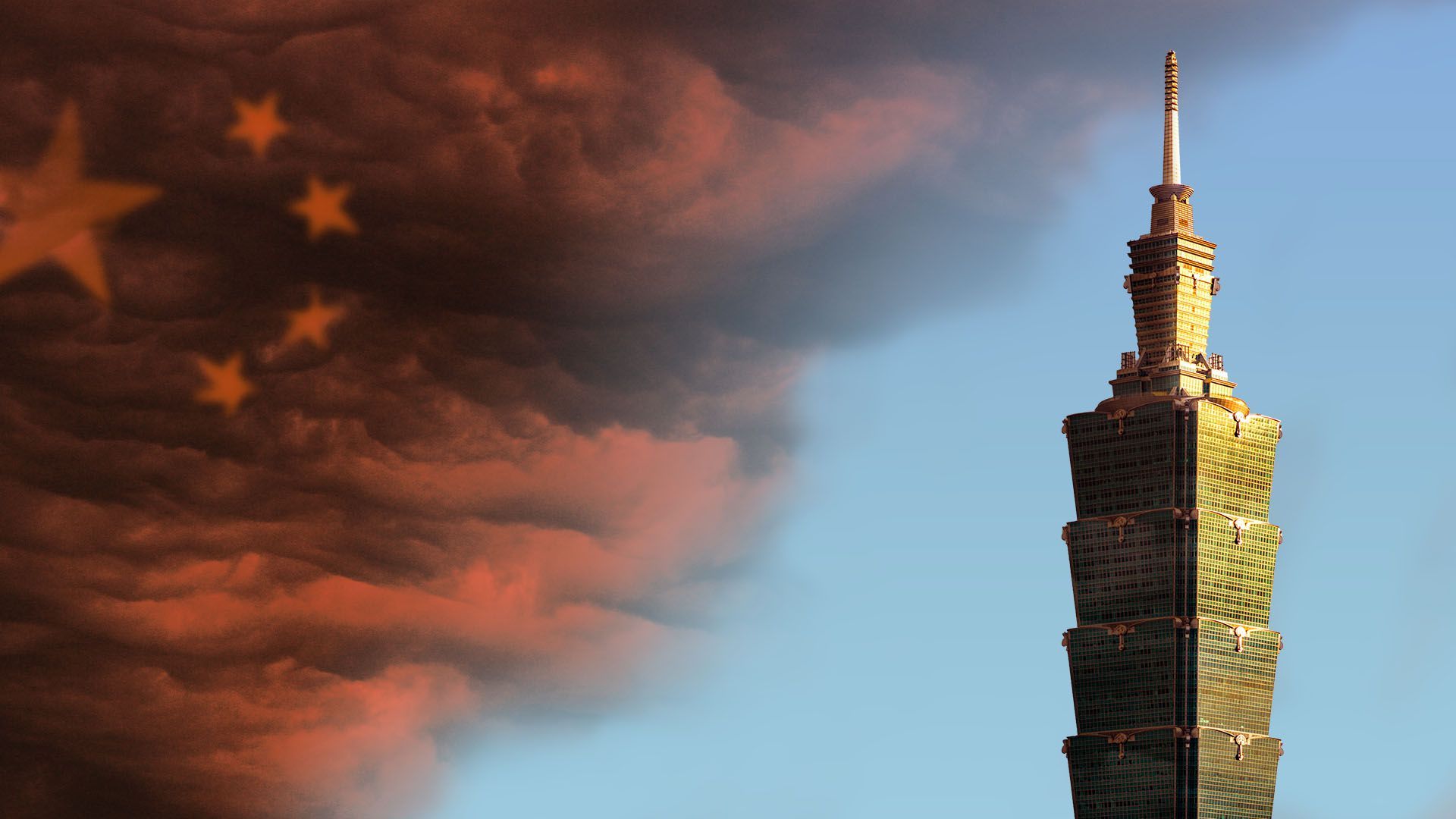As Taiwan's profile rises, so does risk of conflict with China
Add Axios as your preferred source to
see more of our stories on Google.

Illustration: Sarah Grillo/Axios
Taiwan's success in fighting the coronavirus, along with high-profile U.S. support in recent months, has raised the nation's profile on the international stage. But Beijing views this new prominence as a serious provocation.
Why it matters: Military conflict between China and Taiwan could embroil not just Asia but also the U.S. and other outside players in a larger conflagration.
Driving the news: Over the weekend, China released a video simulating a military invasion of Taiwan, the latest in a recent series of saber-rattling propaganda videos targeting Taiwan.
- The video came as Taiwan celebrated its National Day on Oct. 10, which marks the founding of the Republic of China, whose government fled from mainland China to Taiwan in 1949 amid a civil war.
The big picture: Taiwan is a full-fledged democracy that has flourished for decades despite the ever-present threat of forced unification with China.
- The Chinese Communist Party views Taiwan not just as a major crack in its territorial integrity, but also as an ideological threat — Taiwan is living proof that democracy is compatible with Chinese culture and society.
- As a result, Beijing has waged a decades-long campaign to squeeze Taiwan out of the international community, poaching Taiwan's diplomatic allies and forcing it out of international organizations such as Interpol and the World Health Organization.
But 2020 has seen Taiwan's unexpected resurgence on the international stage.
- Taiwan's remarkable success in handling the coronavirus — it's had just seven deaths in a country of 24 million — contrasted sharply with China's early cover-up, fortifying Taiwan's global soft power as it promoted its model.
- In March, President Trump signed into law the TAIPEI Act, which supports strengthened U.S. ties with Taiwan and calls for the U.S. to alter its engagement with countries that have downgraded their relationship with Taiwan.
- Several U.S. officials have visited Taiwan in recent months, including Secretary of Health and Human Services Alex Azar, the highest-ranking U.S. government official to visit the country in more than 40 years.
Beijing has responded with anger and shows of force, including military drills and numerous incursions into Taiwanese airspace.
Where things stand: "Taiwan is one of those flash points that has never flashed," writes Michael Schuman for The Atlantic. But now, says Schuman, the conditions appear to be ripe for possible conflict.
- China and Taiwan are edging away from each other, and from satisfaction with the vague status quo that had kept cross-strait relations stable for decades.
- Beijing has grown more assertive, and it seems to have been emboldened after facing few international repercussions for its brutal crushing of democracy in Hong Kong.
- People in Taiwan have grown more confident in their Taiwanese identity, and they're largely opposed to unification with China, especially after the "one country, two systems" model failed in Hong Kong.
The stakes: A military conflict could be devastating not just for Taiwan, but also for China.
- China would almost certainly pay a heavy reputational cost for any attack on Taiwan, shattering any illusion of its "peaceful rise" on the world stage.
- Though Taiwan is far smaller than China, it boasts a modern military and mountainous terrain that could make for a protracted guerrilla-style conflict that could sap China's money, resources and national will.
